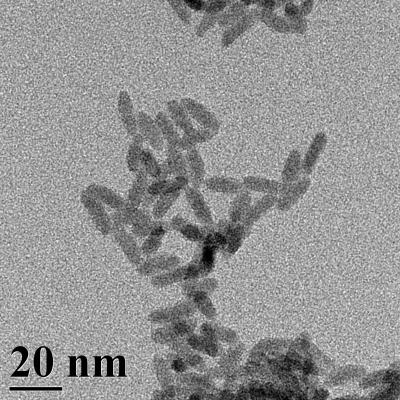According to a study conducted at the University at Buffalo, it has been discovered that quantum dots manufactured from selenium and cadmium decompose in soil and release harmful selenium and cadmium ions into the environment.
Chemistry professor, Diana Aga, who supervised the research, explains that it is essential to comprehend the interaction of quantum dots and other nanomaterials with the environment after disposal.
 Intact cadmium selenide quantum dots, including a "protective" zinc sulfide shell
Intact cadmium selenide quantum dots, including a "protective" zinc sulfide shell
These semiconductor nanocrystals measure about 2 to 100 nm in diameter. Scientists are experimenting whether quantum dots can be used in a wide range of applications such as biomedical imaging and solar panels. Aga stated that quantum dots will be used extensively in the future.
She added that the research establishes that quantum dots can biodegrade, which is a negative finding. It is possible to alter the surface of the nanomaterials and chemistry and to avoid future degradation. The team received a financial assistance of $400,000 to conduct research investigating quantum dots. The research was aimed at studying the transport of quantum dots in the environment, and the biodegradation and bioaccumulation of oxide nanoparticles and quantum dots.
Two types of quantum dots including the cadmium-selenide quantum dots with a safe, zinc-sulfide shell and the cadmium selenide quantum dots were tested during the study. Aga's team discovered that both types of quantum dots released harmful substances 15 days after getting into soil.
Another test was performed to study the behavior of quantum dots entering groundwater. A sample of each quantum dot type was placed atop a thin column of soil and then calcium chloride solution was added to imitate rain.
Scientists closely observed all the selenium and cadmium present in both the columns To find that greater than 90 % of the column with unshelled quantum dots, and greater than 70 % of the column with shelled quantum dots stayed in the soil’s top portion. The movement of nanomaterials was influenced by the presence of other materials in the soil. Scientists found that the quantum dots moved at high-speeds through the soil after the addition of ethylenediaminetetraacetic acid (EDTA).
The data obtained from the research proved that under normal conditions, quantum dots present in top soil will not navigate into underground water tables, without the introduction of chelating agents such as naturally-occurring organic acids or EDTA. Aga stated that the degradation of quantum dots is harmful to the surroundings, even if they are retained in top soil.
The team also determined how Arabidopsis plants react to quantum dots with zinc sulfide shells. They found that the plants did not consume nanocrystals into their roots. The plants underwent a phytotoxic reaction after coming into contact with foreign substances.
Source: http://www.buffalo.edu/